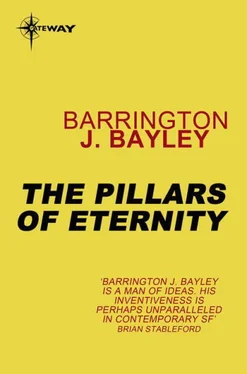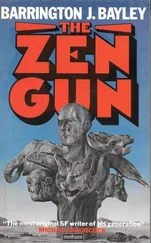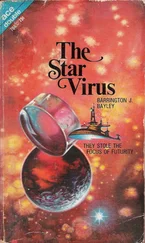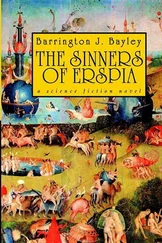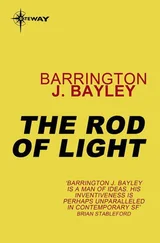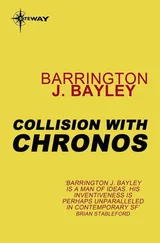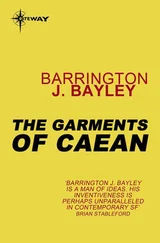Barrington Bayley - The Pillars of Eternity
Здесь есть возможность читать онлайн «Barrington Bayley - The Pillars of Eternity» весь текст электронной книги совершенно бесплатно (целиком полную версию без сокращений). В некоторых случаях можно слушать аудио, скачать через торрент в формате fb2 и присутствует краткое содержание. Город: London, Год выпуска: 2011, ISBN: 2011, Издательство: Gateway, Жанр: Фантастика и фэнтези, на английском языке. Описание произведения, (предисловие) а так же отзывы посетителей доступны на портале библиотеки ЛибКат.
- Название:The Pillars of Eternity
- Автор:
- Издательство:Gateway
- Жанр:
- Год:2011
- Город:London
- ISBN:978- 0-575-10213-2
- Рейтинг книги:4 / 5. Голосов: 1
-
Избранное:Добавить в избранное
- Отзывы:
-
Ваша оценка:
- 80
- 1
- 2
- 3
- 4
- 5
The Pillars of Eternity: краткое содержание, описание и аннотация
Предлагаем к чтению аннотацию, описание, краткое содержание или предисловие (зависит от того, что написал сам автор книги «The Pillars of Eternity»). Если вы не нашли необходимую информацию о книге — напишите в комментариях, мы постараемся отыскать её.
The Pillars of Eternity — читать онлайн бесплатно полную книгу (весь текст) целиком
Ниже представлен текст книги, разбитый по страницам. Система сохранения места последней прочитанной страницы, позволяет с удобством читать онлайн бесплатно книгу «The Pillars of Eternity», без необходимости каждый раз заново искать на чём Вы остановились. Поставьте закладку, и сможете в любой момент перейти на страницу, на которой закончили чтение.
Интервал:
Закладка:
The econosphere, slowly but steadily falling into decay, already owing its grandeur to the past rather than to present vigor, still retained its traditional creed of permanence and stability. From colonnader philosophy it had borrowed the idea of the eternal city and applied it, not to the sidereal realm of the galaxies, which was its proper meaning, but to its own existence. Faced with the knowledge that it must eventually collapse and disappear, it found its salvation in the greater and absolute permanence of cosmic recurrence. The econosphere would never perish, because ultimately nothing ever did.
Now its leaders had conceived a paranoiac suspicion that the course of nature, even on this the vastest of scales, could be interfered with. It reminded Madrigo of psychopathological religions of the past, which had gone so far as to put individuals on trial for ‘sabotage against God’.
A question was being raised by the scientists on the floor. Nothing, they pointed out, lay outside nature. How, therefore, could the human mind find the fresh impulse that could lead it to alter time, even if it were technically feasible? Did that not contradict the principle of predetermination, which was supposed to govern human actions as well as everything else?
‘The determinacy of nature has never been absolutely established, either,’ the Dean of Moss Corporated Laboratories responded diffidently. ‘If temporal mutability is possible, then it shows that nature, to some degree, perhaps hidden until now, is potentially indeterminate.’
‘Nevertheless, we would be faced with the incredible fact that this individual, this shipkeeper Joachim Boaz, must already have come in possession of some mental quality that is uniquely new, if he is to have any prospect of success. The indeterminacy of nature must already have shown itself.’
This remark came, in a more forthright manner, from a man wearing the collar of the Research Tabulation Branch of the Department of Scientific Affairs. He apparently had the ear of Director Hebron, for the latter nodded approvingly. ‘As you say, there is something interesting here. We know, of course, how the fugitive came to conceive his ambition. It arose from his very unusual experience, an accidental combination of silicon bone functions and the pain-feeling function of the sensorium. It must be assumed that it is this that has introduced an indeterminate note into nature, if indeed any exists….’ Abruptly he turned to a burly, big-bellied figure in grey uniform who previously had not spoken. ‘How much pain can one experience? Is it known?’
The person he addressed was Chief of the Rectification Branch of the Department of Police, the arm of the police force charged more than any other with the impossible task of enforcing the econosphere’s political laws. For a moment the police chief looked embarrassed; then he recovered himself and his lip curled in a half-smile of ill-veiled relish.
‘This question has received some investigation, of course,’ he said in an impressively heavy baritone. ‘The problem has always been to maintain the subject’s consciousness while continuing to increment pain levels. Consequently the absolute limit of pain has never been reached by us, surprising though that might seem. The silicon bone gimmick sounds like a good one. I’ll see that it’s followed up.’
‘Please do not do so,’ Hebron said politely but firmly. ‘At least not for the present, until we can clear this whole matter up. We do not want any more Joachim Boazes wandering around.’
Throughout the conference Hebron had been glancing at Madrigo, as if expecting him to take part in the exchanges. Madrigo rose to his feet now, in defiance of established protocol which required those on the floor to remain seated.
‘Allow me to introduce myself,’ he said, gathering in the folds of his cyclas. ‘I know more than any of you about this man you are discussing. I was his mentor in Aurelius.’
He paused, while his gaze traveled coolly over the gathering. ‘Firstly, let me say that any properly trained colonnader like myself will regard your talk regarding alterations to nature as simple foolishness. It is what one can expect from pure scientists. They become hypnotized by their ability to calculate, they allow themselves to become lost in the byways of a logical maze, and so they lose their sense of proportion. They forget, too, that all their science is founded on deeper philosophical ideas. And from the standpoint of genuine philosophy, I can tell you categorically that there can be no alteration to the predestination of time. Whatever happens, the next universe will be an exact reproduction of this one.
‘As for Joachim Boaz, I am sorry to say that his truly harrowing experience has broken his mind, so that he is now even beyond my help. I am certain that he is quite insane, with no vestige of ataraxy. To conjoin in his delusions is undignified in a department of government.’
An initial silence followed Madrigo’s words. Then a babble of argument began. One of the econospheric ministers raised his hand, at which the noise stopped.
He conferred briefly with his two colleagues, in tones which the others could not decipher. Then he turned back to face the gathering.
‘The sense of the meeting is that a situation exists where a derangement of the structure of time could be possible,’ he said coldly, ‘and that this constitutes a threat to the econosphere. We order that the individual Joachim Boaz be found and destroyed. The colonnader’ – he cast an unfriendly glance at Madrigo – ‘is to be held until that is done, for any further assistance he can render.’
Hearing of his pending detention, Madrigo understood that its main purpose was to prevent him from getting a warning to Boaz – even though, on the face of it, memory elision would render it unnecessary. Econosphere officials had a sometimes exaggerated respect for the mental abilities of colonnaders.
He noted, as the meeting broke up, that the police chief’s eyes gleamed with the prospect of the hunt. Even though he, too, after the next few minutes, would not know why the man he hunted was a danger to society.
7
‘This is a nice one,’ said Mace.
Boaz had left his colonnader cards on the table. Mace had been sorting idly through them, and now was inspecting Major Arcanum number twenty. It was the card called Unveiling. Specifically, the veil that in the card called the Priestess had hung between the pillars Joachim and Boaz had now been drawn aside and was draped along one edge of the card. The scene it revealed was unworldly. A mythical semi-human figure, with richly pinioned wings half unfolded to extend rakishly along its back, hovered in a horizontal posture over an indistinct landscape. The ‘angel’, as the figure was called, held to its lips a long, slender trumpet that itself seemed to float endlessly over this same landscape, so elongated was it. The trumpet evidently gave voice to a powerful blast, of a force so great that the group of people who threw up their hands in its path was being dispersed.
Dissolution was the meaning of the card: it depicted, in parabolical language, the time when the universe would collapse into fire and come to an end. The pillars of existence would fall into one another, and the latent, unmanifest eons would begin.
The slight movement of the ship stopped. It had completed its short journey across the ship ground and had entered an underground parking shed. Boaz had taken this precaution to try to reduce the possibility of early discovery by the authorities.
From his armchair, he looked across the table at Mace. They had been together for nearly a year now, hiding in space or on fringe worlds to evade the police hunt which he was sure would be taking place. She had come out of time-stop when they were exactly ten light-hours from Meirjain, and she had told him, when she was able to speak, what it was like to be trapped in one moment in time: an experience which, perhaps, could only be comprehended, and that only partially, by a boneman or woman who had experienced the elongated time sense of altered chronaxy. It had clearly had an effect on her, giving her eyes a drugged, haunted look which faded only after some days.
Читать дальшеИнтервал:
Закладка:
Похожие книги на «The Pillars of Eternity»
Представляем Вашему вниманию похожие книги на «The Pillars of Eternity» списком для выбора. Мы отобрали схожую по названию и смыслу литературу в надежде предоставить читателям больше вариантов отыскать новые, интересные, ещё непрочитанные произведения.
Обсуждение, отзывы о книге «The Pillars of Eternity» и просто собственные мнения читателей. Оставьте ваши комментарии, напишите, что Вы думаете о произведении, его смысле или главных героях. Укажите что конкретно понравилось, а что нет, и почему Вы так считаете.
